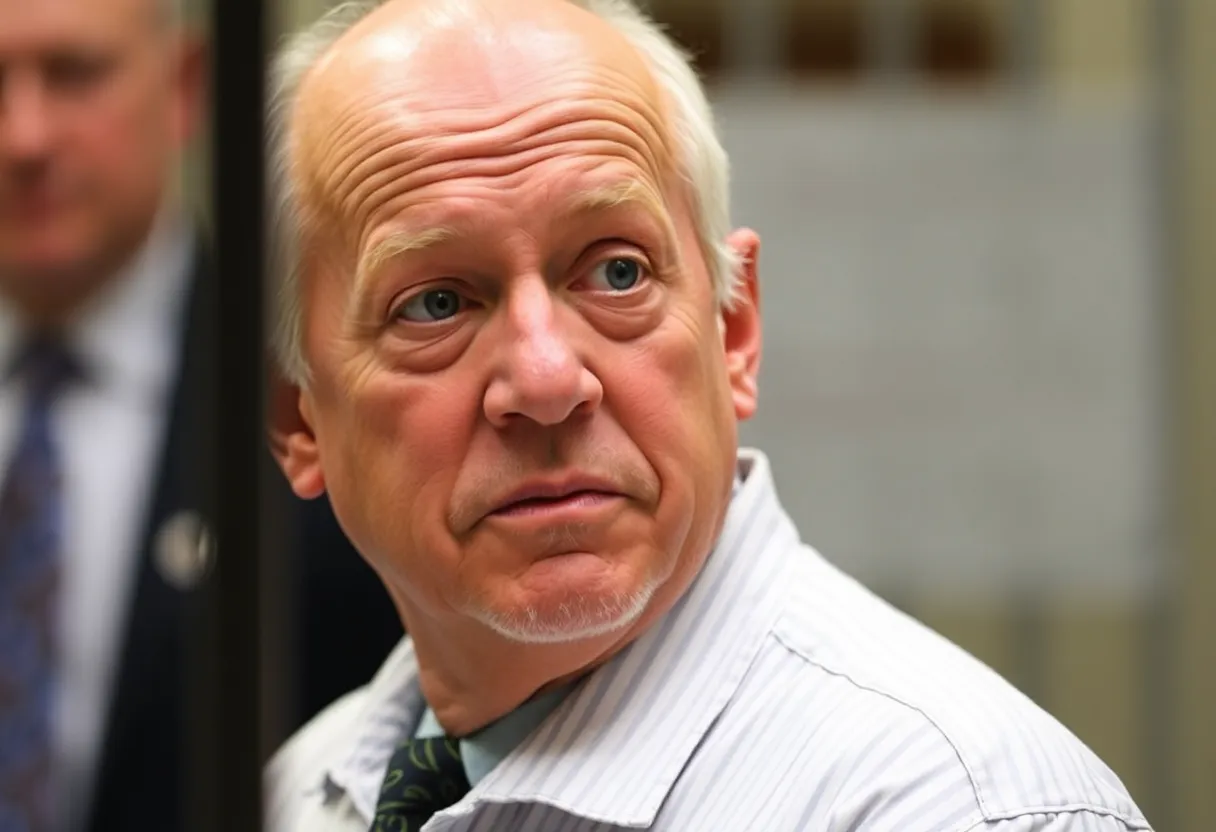

Execution Methods Choices
Want to target the right audience? Sponsor our site and choose your specific industry to connect with a relevant audience.
Prominent brand mentions across targeted, industry-focused articles
High-visibility placements that speak directly to an engaged local audience
Guaranteed coverage that maximizes exposure and reinforces your brand presence
Interested in seeing what sponsored content looks like on our platform?
May’s Roofing & Contracting
Forwal Construction
NSC Clips
Real Internet Sales
Suited
Florida4Golf
Click the button below to sponsor our articles:
Sponsor Our ArticlesRichard Moore, a death row inmate in South Carolina, has been given a significant decision regarding his upcoming execution. On Tuesday, state prison officials informed Moore that he can choose between three methods of execution: a firing squad, the electric chair, or lethal injection. Moore has until October 18 to make his choice; if he doesn’t decide by then, he will face execution by electrocution.
Moore, age 59, is on death row for the fatal shooting of a store clerk, James Mahoney, in September 1999 during a robbery attempt at a Spartanburg County store. Initially unarmed, Moore managed to wrestle a gun away from Mahoney during the robbery, which ultimately led to a shootout that resulted in Mahoney’s death from a bullet to the chest. Moore himself was wounded in the incident.
His execution would be notable for several reasons. According to his legal team, Moore is the only man on South Carolina’s death row convicted by a jury without any African American members. Furthermore, should he be executed, he would be the first person in modern South Carolina history who initially entered a crime scene unarmed but later defended himself when threatened with a weapon.
South Carolina Corrections Director Bryan Stirling confirmed the state is prepared for the execution. The electric chair, built in 1912, was tested in early September and is operational. In addition, the state has acquired the necessary components for a firing squad. Three volunteers have been trained to fire at a specified target from a distance of 15 feet.
Furthermore, recent developments have also seen the lethal injection method becoming available again. After a 13-year hiatus in executions due to a shortage of execution drugs, the state recently reintroduced this method following a new law that allows it to access the required drug. The drug used for lethal injection, pentobarbital, has been confirmed as pure and stable by technicians at the state crime lab, according to a certified letter sent to Moore.
The execution of Moore would mark just the second execution in South Carolina after a long delay, with the previous execution taking place on September 20, when Freddie Owens was put to death by lethal injection. Before this execution, South Carolina struggled to obtain the drugs necessary for such a method due to a privacy law that limited information available about drug suppliers.
In light of his upcoming execution, Moore plans to appeal to Governor Henry McMaster for mercy, requesting that his sentence be reduced to life in prison without the possibility of parole. However, it is noteworthy that no governor in South Carolina has ever granted clemency in the modern era of the death penalty.
South Carolina has executed 44 inmates since the death penalty was reinstated in 1976, often averaging three executions annually in the early 2000s. Over the years, the population on death row has seen a significant decline. From a peak of 63 condemned inmates in 2011, the current number sits at 31. Many inmates have had their sentences commuted following successful appeals, while others have passed away from natural causes.
News Summary On February 24, 2025, Fort Mill, SC, was rocked by a tragic shooting…
News Summary Columbia, South Carolina faced severe weather on Sunday morning, with tornado and thunderstorm…
News Summary A South Carolina jury awarded $700 million to the family of Brittanee Drexel,…
News Summary Professionals in Charleston are invited to the 'Business & Brews' networking event at…
News Summary Wilmington, North Carolina, has emerged as the fastest-growing metro area in the state,…
News Summary Spartanburg, South Carolina, is witnessing a tourism boom, contributing $29 billion annually to…